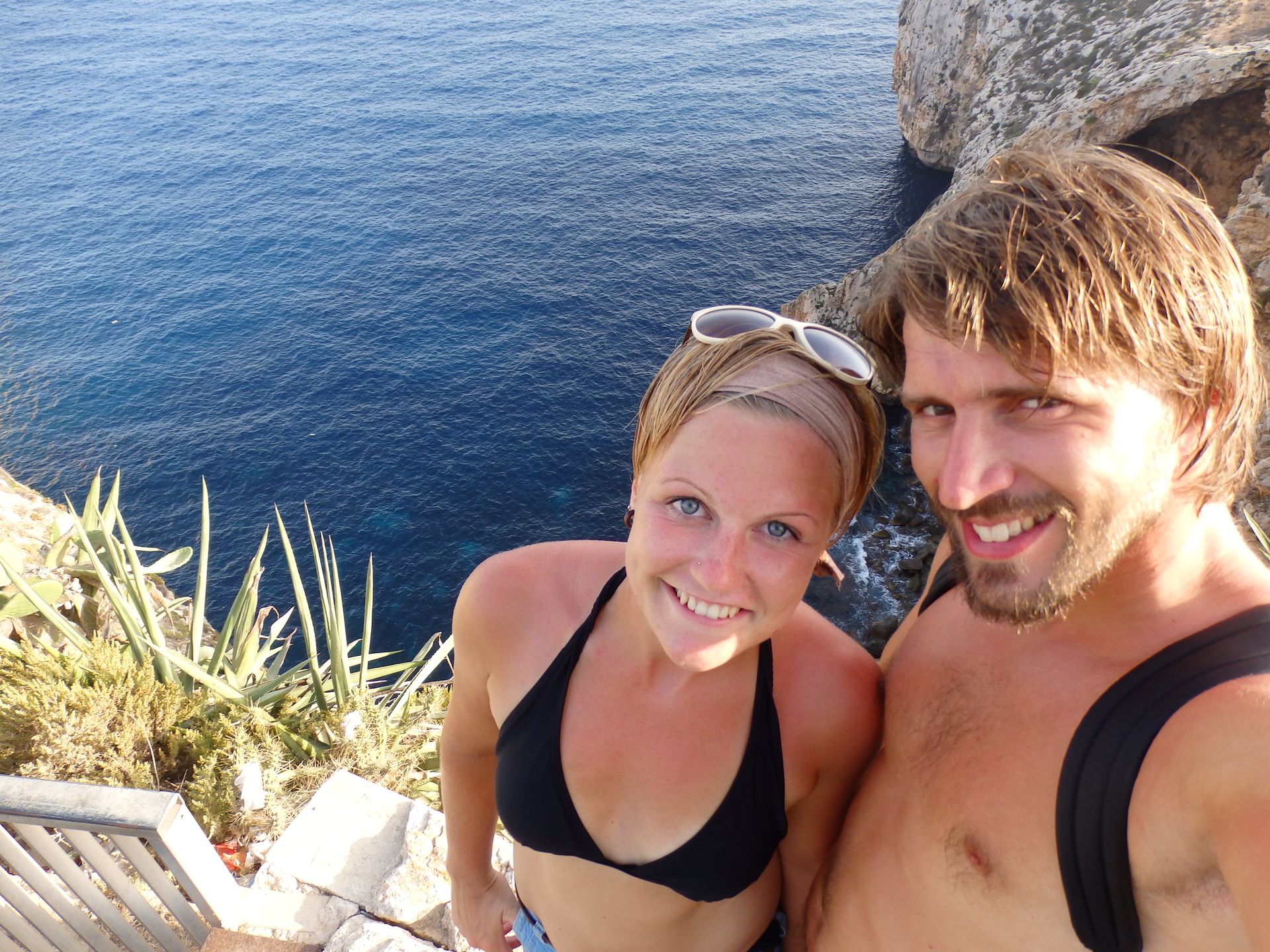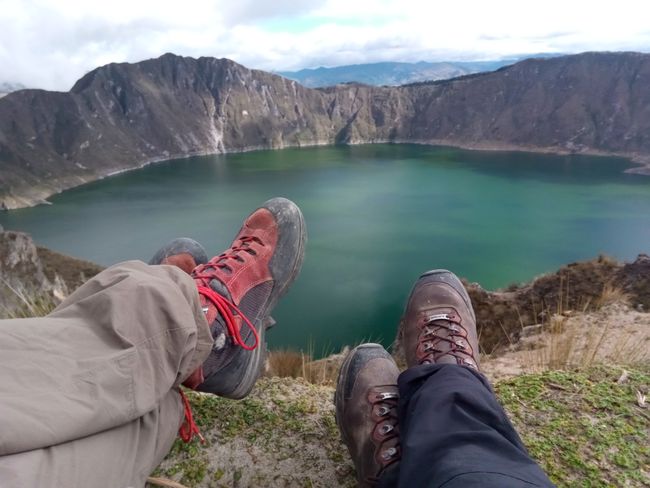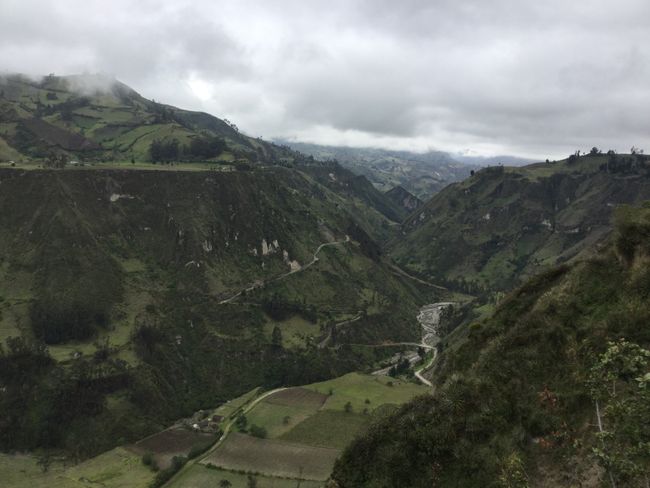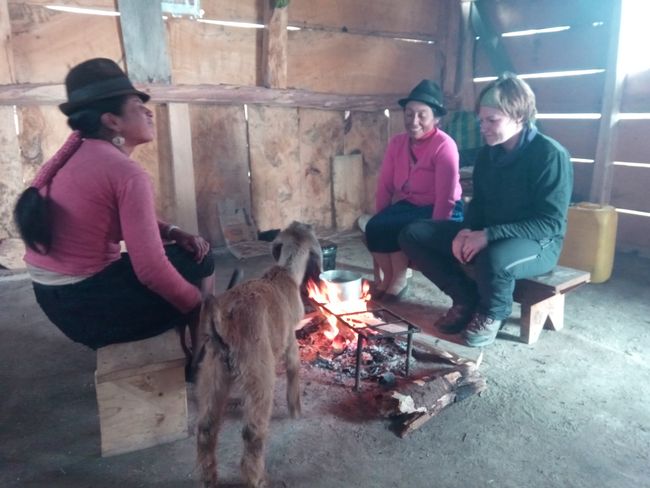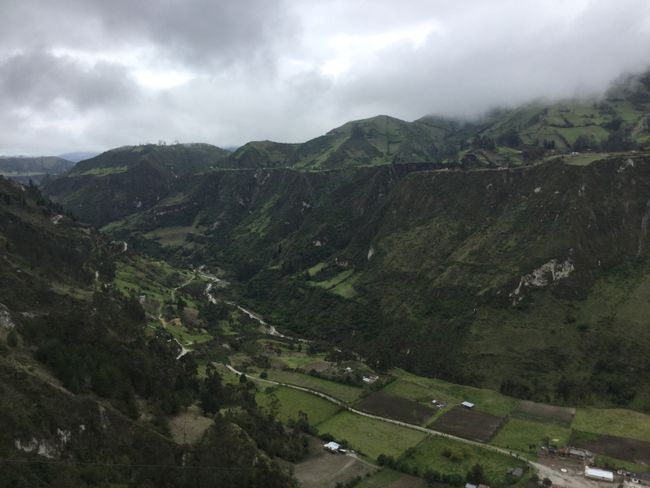Acclimatization I - Quilotoa 3914m
প্ৰকাশিত: 18.01.2019
নিউজলেটাৰ চাবস্ক্ৰাইব কৰক
After enjoying a few sunny days in Baños, we continued on a trekking tour from Isinliví to Chuchilán to Quilotoa. The bus ride itself was an adventure, as the small mountain village of Isinliví can only be reached via very narrow mountain roads. The bus that took us to the village had to reverse on the tight switchback roads - with the steep rock wall on one side and the steep slope on the other - in order to "make the turn".
As the trail we wanted to hike was very well-known among tourists, we were surprised when we arrived in Isinliví, the most famous starting point of the trail, in the early afternoon: The village was deserted, there were no signs directing us to hostels or the trail. Thanks to Maps.Me, we found a hostel where we briefly got information about the trail and then set off to find a nice spot to pitch our tent. The plan was good, but the implementation failed miserably. After about thirty minutes of walking, it started to rain, which didn't bother us because we thought the sun would soon come out again. The opposite was true... After another thirty minutes of steep downhill walking, it started pouring rain, so we were forced to seek asylum at a farm until the rain stopped, soaking wet. The old mother and her two daughters immediately made space on the otherwise populated (and dis guests...) house bench, which was populated by chickens, turkeys, and geese, and served us heavily sweetened coffee and salted popcorn. The thought of setting up the tent later on the completely soaked ground filled us with fear, so we gladly accepted the offer of the farmers to spend the night with them. So we took up quarters in a small chamber, where the cold wind whistled through the cracks in the window and the uninsulated roof under which we lay. Our sleeping bags could prove themselves as "warm enough" for the first time in the dry but very cold night quarters! We were even more pleased with the warm dinner we were served.
The next morning, the rooster on the farm woke us up before sunrise, so we were already able to set off early for Chuchilán - this time in bright sunshine!
Heavily loaded with tent, sleeping bag, sleeping pad, supplies, and water for the next three days, narrow paths washed out by rain led us steeply uphill and downhill. The indescribably beautiful view along the entire way rewarded us for the effort we had with the heavy backpacks. The steep slopes of the Andes mountains shone all around, below the steep rock slopes the river glittered in the sun, and again and again we passed lonely farms whose owners cultivated the surrounding fields by hand with great effort. The effort required in work without machines can probably only be understood by our grandparents...
After a few hours, we reached the city of Chuchilán and decided to go a little further to set up our tent in a quiet spot outside the village. First, we went downhill steeply again to the river, past shepherds and small farms, across meadows and sandy paths. After crossing the river in the valley, we struggled again with the huge backpacks up a narrow path, through moss-covered rock crevices, past small waterfalls, and over rickety wooden bridges. Almost at the end of our strength after covering more than 15 km, we just managed to reach a vantage point in time before the rain started, where we set up our tent, protected from the rain under a pavilion.
The view we could enjoy the next morning compensated us for everything! The sun rose brightly above the valley and bathed the west side of the mountain range with its fields and meadows in golden light. Gradually, we saw the little villages wake up, the sheep bleated in the distance, and we saw the first hikers setting off on the steep path.
A little exhausted from the previous day, we set off for the next stage only around noon. We only had to cover about 5 km to our next destination, so we could look around again to enjoy the beautiful view or stop briefly to have a chat with the locals we met on the way. In the late afternoon, still exhausted from the lecture, we reached our destination: the crater rim of the Quilotoa volcano, which is known for its bright turquoise-green crater lake. We postponed the last part of the trail (just about 3 km along the crater rim) to the next day in order to enjoy the view here and cure our muscle soreness in the afternoon.
When the tent was set up in a (presumed) wind-protected spot, we were invited to a cup of hot coca tea at the refugio and were allowed to cook our noodles at the refugio's fireplace, which is only open until about 3:30 pm. Satisfied and warmed up, we were now able to enjoy the solitude and the panorama of the crater lake all by ourselves, after the last hikers and the owners of the refugio, along with their little, cheeky goat, had left the viewpoint. The fog that was rising behind us was blown away by the sharp wind that was blowing over the volcano and built up behind us into a mighty wall of fog. So in the late afternoon, we caught a clear view of the lake illuminated by the last rays of sunlight, which made it shine in all its glory. Besides the wind, only individual bird chirping could be heard - we hadn't experienced such silence throughout the entire vacation! We were already looking forward to the first rays of sunlight the next morning and went contentedly to our Spartan overnight camp.
The contentment did not last long at night, unfortunately, as the wind picked up from hour to hour and pushed our tent to its limits. Equipped with my earplugs, I didn't notice anything until the early morning - Johannes, unfortunately, had a rather sleepless night behind him. I didn't even notice that he had to tighten the guy ropes several times during the night because of the storm... We were a little disappointed the next morning, too, when the sky remained cloudy throughout the morning and we could not again catch a "exclusive view" like the previous morning. But since we had already had it the day before, the disappointment didn't last long.
Strengthened with a fresh cup of coca tea and the remaining noodles, we then set off on the short journey to Quilotoa. Since supplies and water were almost depleted by now, the backpacks were pleasantly light to carry, and we managed the steep paths without too much effort and were able to enjoy the magnificent view of the lake and the surrounding mountain ranges undisturbed - the sun even occasionally made an appearance!
More photos will follow as soon as we have access to "better" internet :)
নিউজলেটাৰ চাবস্ক্ৰাইব কৰক
উত্তৰ
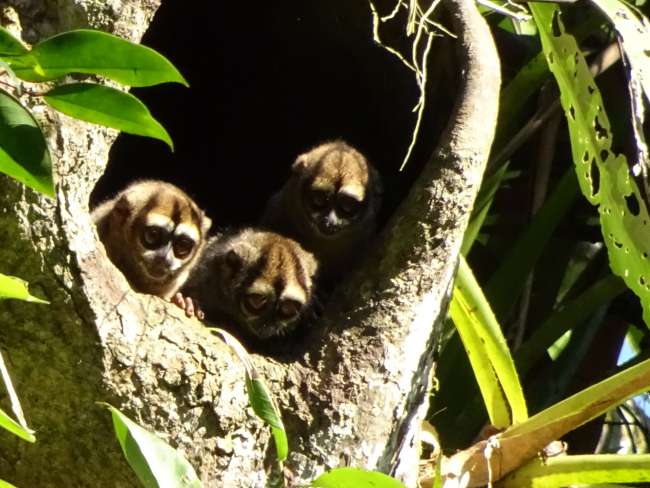
ভ্ৰমণৰ প্ৰতিবেদন ইকুৱেডৰ
